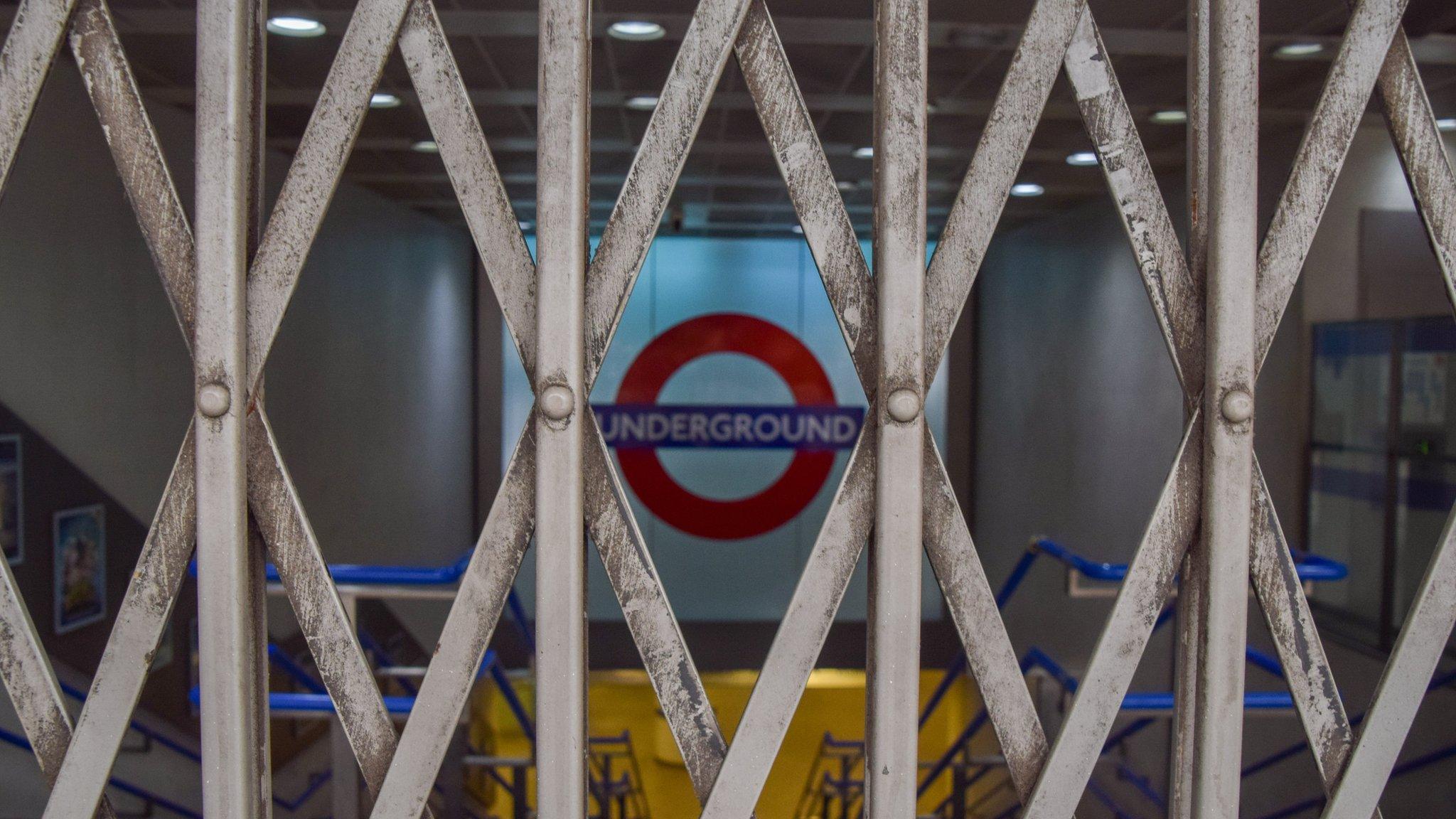Train strikes: Disruption in Wales as fresh action begins
- Published
- comments
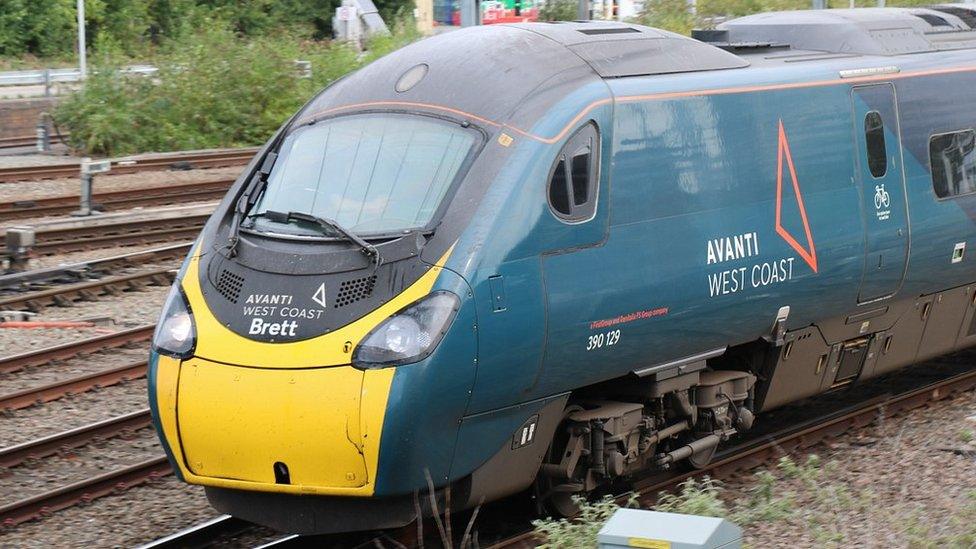
No Avanti West Coast services will run on Wednesday and Saturday, with limited running on Friday
Rail passengers in Wales are facing three days of disruption as the latest round of rail strikes get under way.
Train drivers' union Aslef is striking on Wednesday and Saturday, meaning no Avanti West Coast services in and out of north Wales will run.
There will also only be a limited service for north Wales from Crewe on Friday due to an RMT union strike.
Services in and out of Cardiff will also be affected on Wednesday, Friday and Saturday.
Limited Great Western Railway services will be running between Cardiff and Bristol on Wednesday and Saturday, while there will be limited trains between the city and both London Paddington and Westbury on Friday.
Transport for Wales is not one of the 16 companies affected by the Aslef strike or 13 by the RMT strike, but warned its services would be extremely busy due to the "severely reduced timetable put in place by other operators".
'Last thing' businesses need
North Wales Tourism boss Jim Jones said the strike action was "the last thing" under pressure local businesses needed.
"If tourists encounter these cancellations, they in turn will cancel their bookings that they may have made six, seven, eight months ago, even last year," he said.
"I understand the reasons for the strikes, however, I think it's been going on long enough now and time is of the essence now to help us as an industry to get onto a firm and strong footing."
Mr Jones said he "despairs" when visitors in north Wales are "let down" by the train network, adding that it was a "big, big disappointment".
Why are railway workers striking?
Unions have said that any pay offer needs to reflect the rising cost of living, while rail industry bosses are under pressure to save money after a costly pandemic.
Aslef boss Mick Whelan told the BBC earlier this month that train drivers had not had a pay rise for four years, as a new pay deal had not been reached since their last agreement ended in 2019.
However, Transport Minister Huw Merriman said the pay of train drivers had "gone up by 39% since 2011... the highest increase of any employment group".
According to the Office for National Statistics (ONS) the median pay for "train and tram drivers" is just under £59,000, while the average for all rail workers in 2022 was £45,919, or £39,518 if drivers are excluded.
On 5 May, RMT members voted to extend the strike mandate for another six months, while Aslef rejected an offer which would have seen drivers get a backdated pay rise of 4% for 2022 and a 4% increase this year.
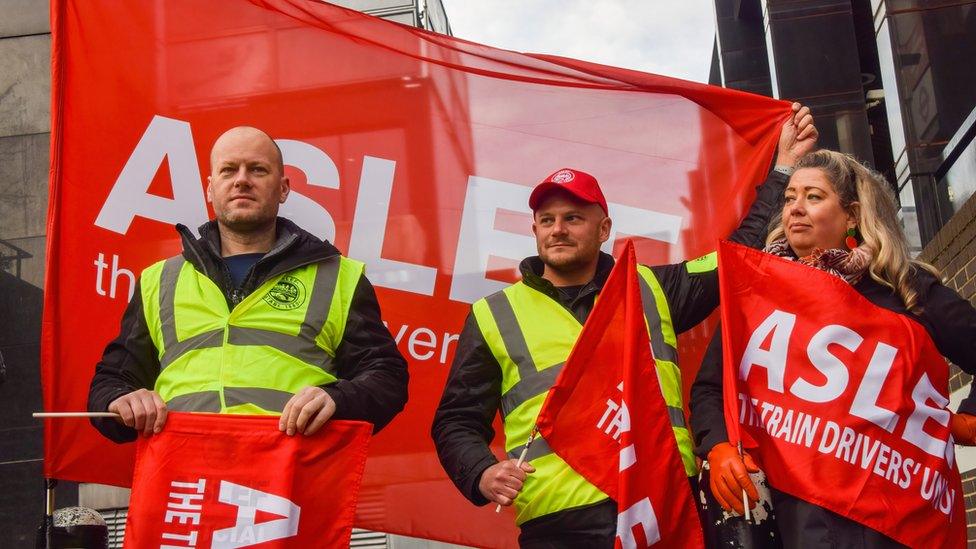
ASLEF has said train drivers have not had a pay rise in four years
Andy Mellors, managing director at Avanti West Coast, said passengers should not attempt to travel at all on their trains on the 31 May and 3 June, as no trains at all would be running.
"We'd like to thank our customers for their continued patience and understanding during this time," he said.
"We can only apologise for the further disruption to their journeys when Aslef and RMT members go on strike in a week which sees school holidays for many as well as a number of events including the FA Cup Final."
Tom Travers, 22 from Flint was waiting for a train to go to work in Chester. He said he understood why the strikes were taking place, but found it frustrating.
"I'm going to be half an hour late for work now because of it…it's a bit annoying, especially because the rail prices are still going up. It feels like this is how it is now."

Mr Travers said he had struggled to get to Eurovision in Liverpool because of the strike earlier this month
He added that it was infuriating that strike action was always targeted at events taking place around the country.
Rob Williams from Mold was at the station taking his children to Manchester to the city's football museum.
He knew about the strike but was not sure how it would affect the TFW train he was planning to take.

Rob Williams said he was unsure how the strike would affect him
"I think we'll be ok going but I'm expecting it to be busy coming back, standing room only."
Related topics
- Published18 May 2023
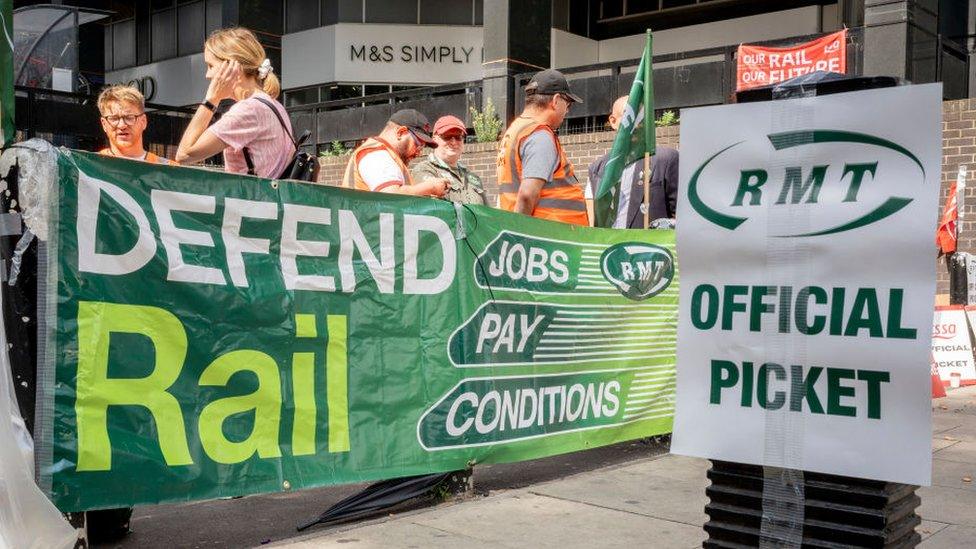
- Published13 May 2023
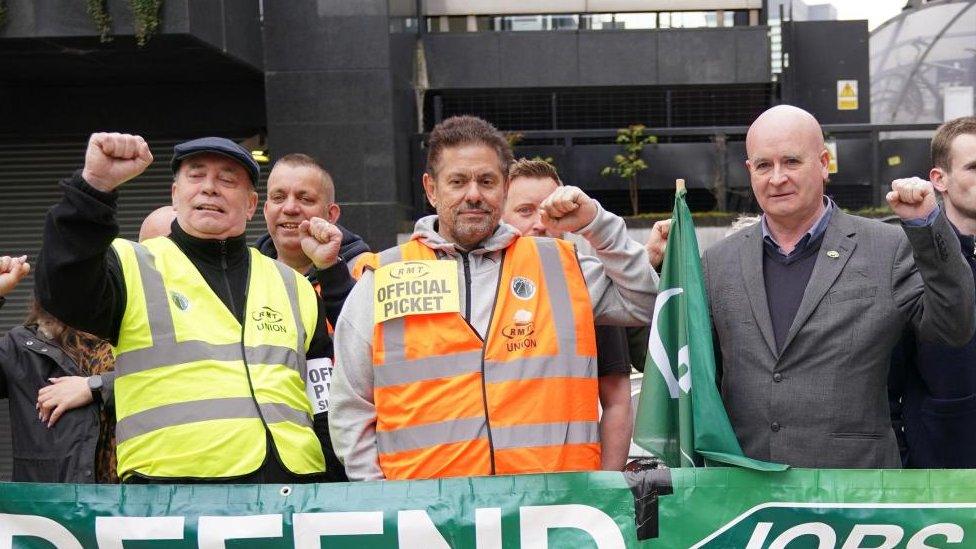
- Published27 April 2023
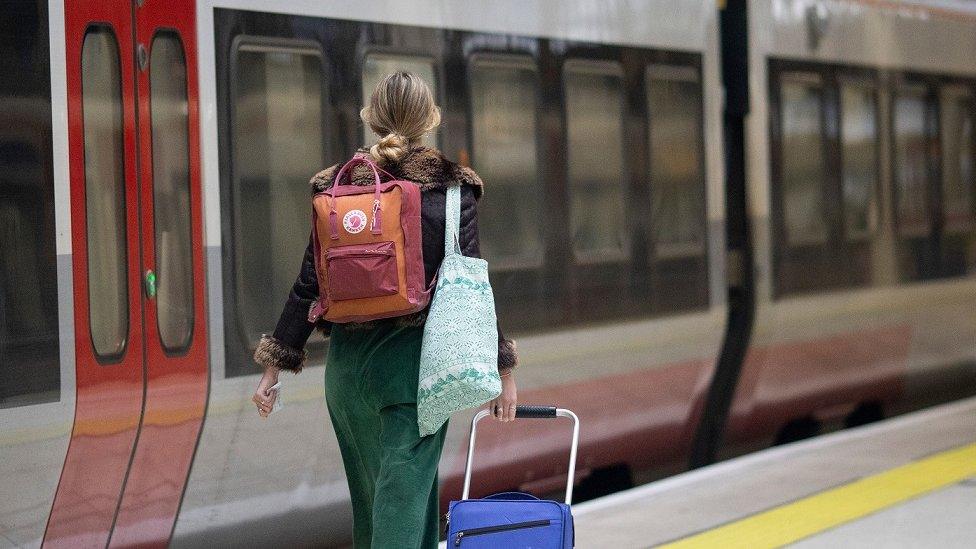
- Published21 April 2023
